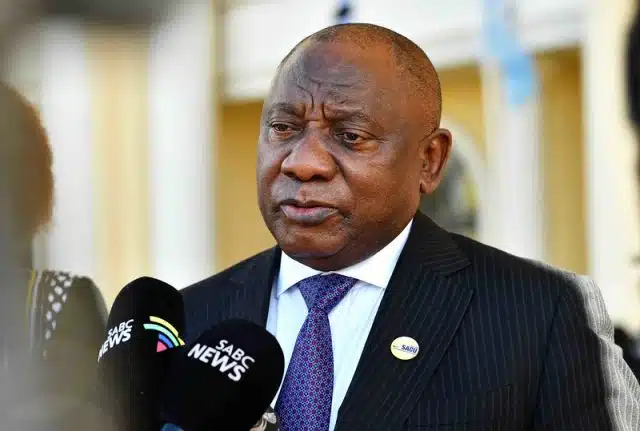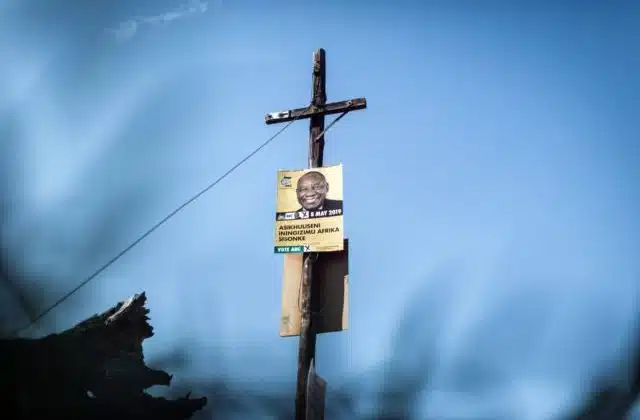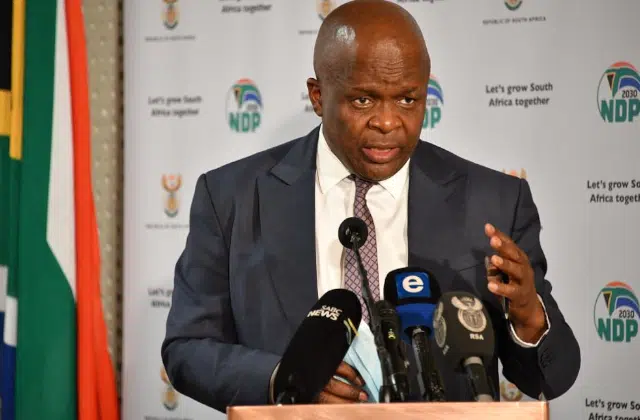
Ramaphosa wants to push transformation in South Africa to a ‘higher gear’
President Cyril Ramaphosa says more needs to be done to expand and support black-owned businesses in South Africa.
Speaking at the inaugural Black Industrialists and Exporters Conference in Sandton on Wednesday (20 July), the president said the country’s black industrialists need greater representation across the economy.
While progress around broad-based black economic empowerment (BBBEE) has been made, Ramaphosa said that the transformation agenda needs to “shift to a higher gear”.
According to the president, the transformation agenda in the country is underpinned by two broad goals:
- To secure greater diversity in ownership and control of the economy; and,
- To promote emerging enterprises to drive inclusive industrialisation.
To reach these goals, there needs to be a focus on cutting bureaucratic red tape and addressing other obstacles within the state, he said. However, he stressed that the responsibility also falls on the private sector.
“We want a frank conversation about impediments to the expansion of black business, not just from government, but from the private sector as well,” he said.
“We need to talk about private sector procurement, about value chains, about access to financing for emerging black business and about how existing systems militate against emerging black business.”
The president said that to improve the trajectory of broad-based black economic empowerment, fundamental reforms need to address the country’s failing infrastructure.
The government should take necessary steps to improve the state of ports, rail lines and roads across the nation – but there also needs to be more competition in the telecommunications industry, energy and water sector.
“These reforms are all necessary if we are to create conditions that enable black industrialists to emerge, to grow and to flourish.”
Incoming regulations
In June 2022, Ramaphosa appointed the country’s new BBBEE Advisory Council which will be responsible for guiding the government on the ‘intensified transformation’ of the economy.
Subsequently, the government has made two big transformation moves in the events and legal industries in South Africa.
The Department of Sport, Arts and Culture is holding national consultations on a new BBBEE sector code for the Events, Technical and Production Service Industry, focused on transforming the events industry which has historically lagged behind BEE targets in the sector.
The formation of a BBBEE sector code for the events industry comes after President Cyril Ramaphosa’s cabinet has approved the publication of the Draft Legal Sector Code (Draft LSC) for public comment.
The draft legal code comes as the legal profession does not currently have a sector code to guide it in addressing the imbalances and inequalities in the profession.
Transformation was also a key topic in discussions held between the government and some of the large media houses in the country, where there was “an in-principle agreement on what needs to be done” in the industry.
The biggest transformation push, however, comes through the new Employment Equity Amendment Bill, which is expected to be the vanguard of a new transformation push for the country.
The bill will allow the Employment and Labour minister Thulas Nxesi to set employment equity targets for different business sectors. The minister can set targets for different occupational levels, sub-sectors or regions.
The amendments would also require the government to issue contracts only to firms that have been certified as compliant with this law.
The bill is currently before president Cyril Ramaphosa for consideration. The government is expected to conclude the legislative process for the bill in September 2022.



